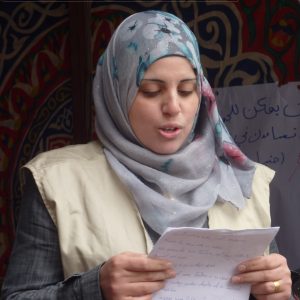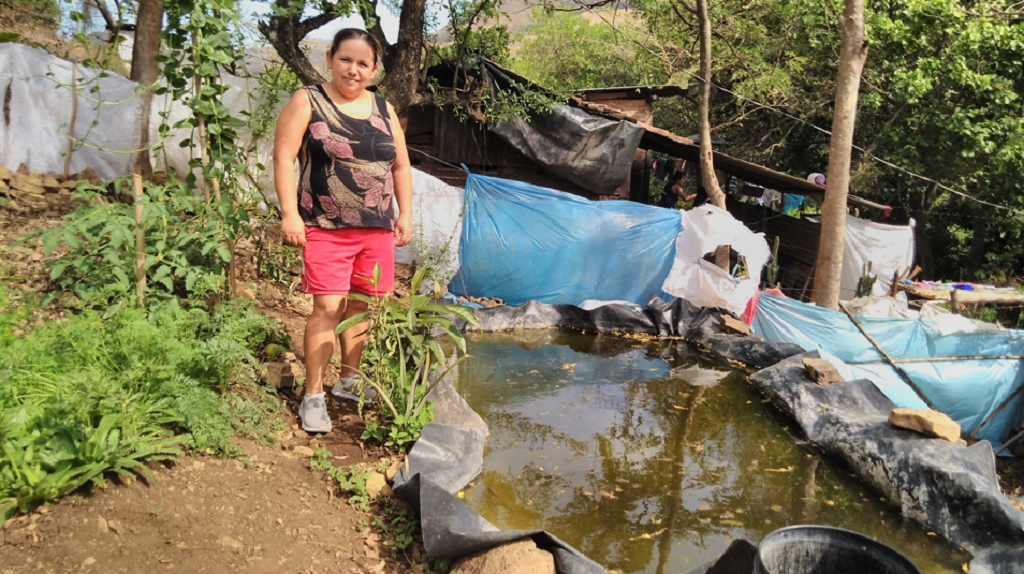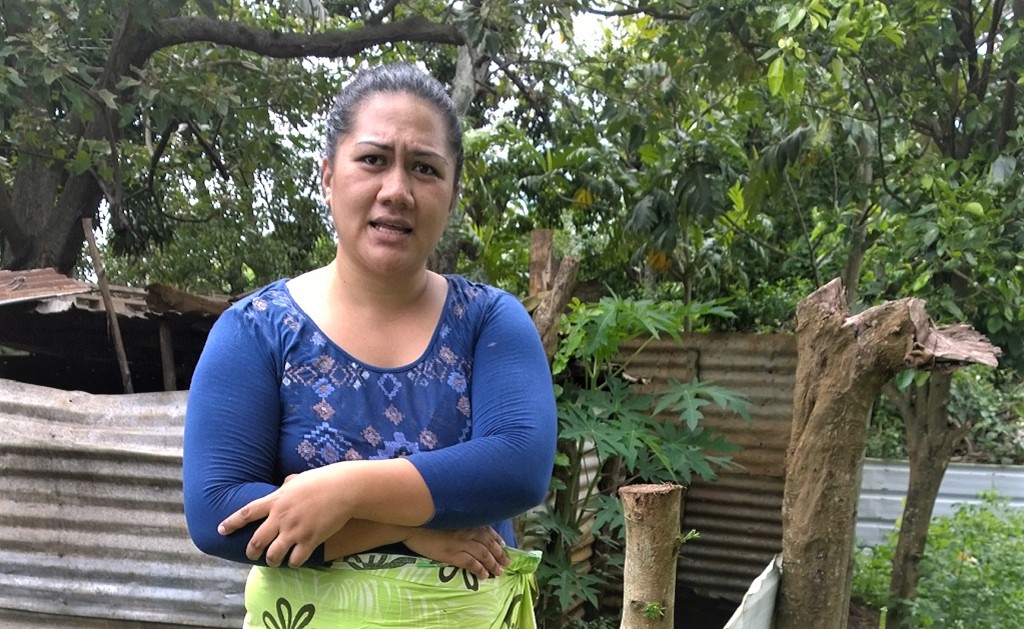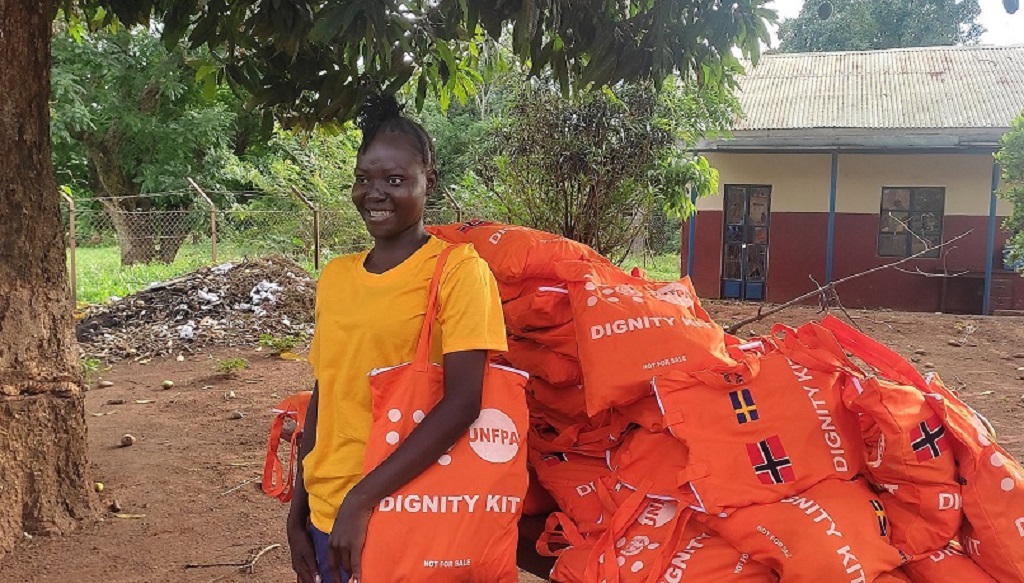But you Came and Cared
 The well-being of the individual and the community is at the heart of good development. Local people know their communities. They are the first responders and the last responders after a disaster. Working together, people can achieve better results because they know each other and have shared similar experiences. Poverty and injustice affect people’s well-being and can have long term psychological effects.
The well-being of the individual and the community is at the heart of good development. Local people know their communities. They are the first responders and the last responders after a disaster. Working together, people can achieve better results because they know each other and have shared similar experiences. Poverty and injustice affect people’s well-being and can have long term psychological effects.
In the hot Jordan sun, a group of women sat beneath a colourful canopy on the edge of the Husn Refugee Camp, home to generations of Palestinian refugees. The year was 2015 and former International Programmes Coordinator Trish Murray knew she was about to meet women who had fled the conflict in Syria. Most wore a black headscarf rather than the bright colours worn by the Palestinian refugees who already lived in the crowded camp. In the sea of black, it was easy to pick out the children who had come because there was no one else to take care of them.
For Trish the meeting was a welcome opportunity to hear from the women themselves. The women had come prepared to tell their stories. All were grateful for the way DSPR had made the transition from war-torn Syria easier. Trish was expecting this response because she knew DSPR provided emergency food rations and free medical days, as well as training women’s leaders for its network of women’s groups. But then the women started to tell other stories, stories the team from DSPR had not heard before. One woman had brought her son in a pushchair – if DSPR had known earlier they could have given the family more help. The women talked about how hard it was to live in Jordan and the challenges of managing aging parents or children in a crowded and unfamiliar place. They shared their worries for their homeland and their fears for the future. Most spoke in Arabic but one woman read out her handwritten speech in English.
The scene was rich with emotion but the women did not speak about the sound of bombs in the air or the brutality in the streets back home. Instead, they wanted to know how to navigate this unfamiliar world, how to get help for their families. Trish could only listen, but eight years later, one woman’s words stay with her, “But you came”. For her, the words were of solidarity and an acknowledgment of the importance of listening to their stories.
Gardening Therapy
“Seven years ago, my son, who was 12 years old, died in a vehicle accident. It was really hard for me, and since then, I try to participate in different community activities so that I don’t have to remember the hole in my heart,” said Jasmina, now a small farmer in rural Nicaragua.
When CEPAD (Council of Protestant Churches in Nicaragua) came to her community, it was the family gardening programme that caught her interest. If she could grow food on the very rocky land around her house, she knew her family would be healthier, and she might have money for other needs.
After attending the training, Jasmina added wet soil, sand, cow manure, ashes and other material to the land. CEPAD gave her seeds so she could grow tomatoes, peppers, onions, cabbage, squash, cucumbers, radish, pineapple and yucca. She has built new relationships and strengthened old ones by participating in the programme.
“I can contribute more to my family’s income while producing vegetables for us to eat. I feel useful with my new knowledge and can serve my family and neighbours, who are impressed with my garden’s results. I’m able to share what I’ve learned with my neighbours and others in my community, even some who have family members in difficult situations. Praise God that we have something to eat every day!” she concluded.
A Legacy of Trauma
More than a year after the eruption of Tonga Hunga-Tonga Ha’apai, and the following tsunami, Tongans are carrying trauma. Some have stopped speaking and many are anxious about the future. The Tonga Community Development Trust has plans to help. It will train members in community-based psychosocial help. The Amatakiloa ‘a Fafine Tonga women’s groups want to help the people in their villages to recover.
Raising Children for Peace
In the past, community well-being was often taken for granted in development work, but now it is getting much more attention as people face new challenges. South Sudan may be one of the world’s poorest countries, but our partner Mission for Sustainable Advancement is focusing on girls and young women. As well as funding scholarships to keep girls at school and prevent child marriage, it runs a monthly training programme addressing issues of sexuality and wellbeing. Starting from Maridi, MSA is making the dream of a peaceful South Sudan a reality one step at a time.
Support the Psychosocial Care Appeal.
Read as a PDF: But you came and cared.




